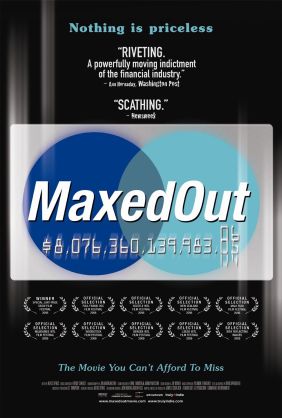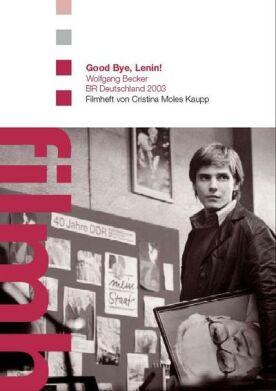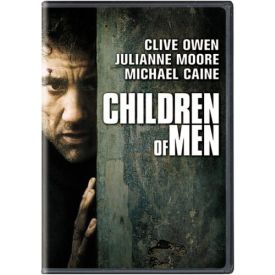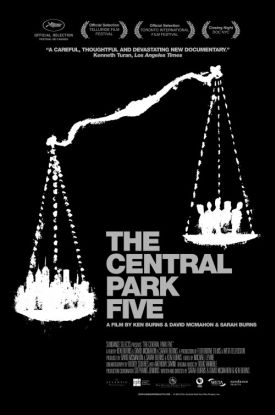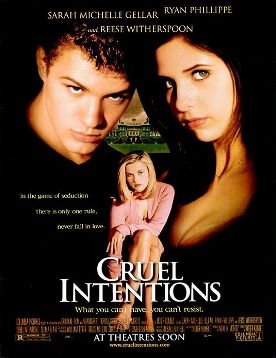Maxed Out
Maxed Out, James Scurlock’s documentary about the American way of debt suffers from the usual problem with political documentaries these days: a surfeit of targets. The explosion of consumer credit would have been a subject well worth looking at on its own, but Mr Scurlock piles on political corruption, corporate greed, bad accounting practices, the bankruptcy laws, credit reporting bureaux, the religious right, campaign finance, deficit spending, and income inequality. Even the Iraq war comes in for a mention or two. In other words, if you look at it in strictly political terms, the film also has too few targets. In fact, only one. Like Michael Moore and many others on the bumper-sticker left — including, most recently, David Remnick of The New Yorker — it too often succumbs to the temptation of assuming that, if only George W. Bush was not president, a world of problems would simply disappear.
This assumption is the infallible mark of political unseriousness, whether in a politician, a journalist or a film-maker. However poor his performance in office, the President has much less power over events than his enemies give him credit for, and the debt problem is like most of the others we face — including even Iraq — in having roots that long antedate the 2000 election. Not only is Mr Scurlock guilty of political over-simplification, but his political agenda blinds him to some of the real and much more interesting social causes of the phenomena he adumbrates. He never mentions, for example, the subject of shame.
Within living memory, loan sharks were classed in the popular imagination with pimps, prostitutes, pornographers, drug dealers, gamblers and others who made their living out of preying upon the weakest in society. Now such people, with the possible and only partial exception of drug dealers, are glorified by the popular culture instead of being made to feel ashamed. State governments have taken over from the numbers racket as the chief purveyors of gambling opportunities to the poorest and most vulnerable. Could this have anything to do with the fact that, as Maxed Out demonstrates, so many of the most respectable banks and other good corporate citizens now depend on something close to loan-sharking for the lion’s share of their profits — and that they are quite brazen about admitting it?
In all the many tales of woe that it seeks to milk for their undeniable pathos, never once does Maxed Out breathe a word of censure against those who have got themselves into serious debt trouble. Its model is the therapeutic one that also now applies to alcohol, drugs, sex, gambling and an ever lengthening list of other human frailties. Debt is a form of addiction. Fair enough, we may say. It would probably have been foolish to have expected the film to take any other view of the matter. But if you say A you must also say B. If there is no moral dimension to becoming a debtor, why should we suddenly suppose that there is one to becoming a creditor, even a predatory one? It’s a two-way transaction, after all. Just like prostitution. If, in other words, it’s morally unproblematic to supply the susceptible with such other instruments of self-harm, or even self-destruction, as alcohol, drugs, sex and games of chance, why not credit too?
At one point Mr Scurlock appears to think he has coaxed a damaging admission from a couple of raffish debt-buyers — or duns, as they used to be called — who compare themselves to pirates, walking their hapless victims out to the edge of the plank until they cough up, then walking them back. He even provides a humorous illustration of the process with a clip from an old pirate movie. Yet he never notices what would have seemed to almost anyone only a few years ago the most striking thing about the comparison: the fact that the pirates are proud of being pirates. Well, why shouldn’t they be? Haven’t two of the most profitable movies for the family-friendly Disney corporation in the past few years been called Pirates of the Carribean? Who’s ever taught them that being a pirate, any more than being a debtor, is wrong or shameful?
Another of Mr Scurlock’s touches of humor comes with periodic clips from an educational film of the 1950s in which a respectable-looking, white-haired old gent called “Mr Money” instructs two clean-cut high-school aged kids of the period about responsible attitudes to assuming debt. As with any similar filmic reference to people who look like these and talk in that stilted way they had in1950s-era documentaries, the subtext is one of ridicule for their up-tightness and artificiality. Yet what has Maxed Out got to offer instead of such old-fashioned moralism? Nothing but, by implication, the exhortation to vote Democratic. If he thinks that’s going to solve the problem, Mr Scurlock is as gullible as the pathetic creatures he showcases in his film.
Discover more from James Bowman
Subscribe to get the latest posts to your email.

